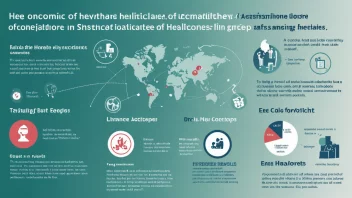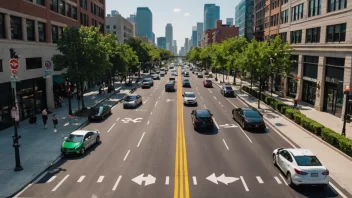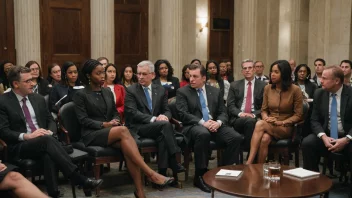In democratic societies, public opinion serves as a vital compass guiding the direction of policy decisions. It encapsulates the collective views, beliefs, and preferences of citizens, influencing how elected officials formulate and implement policies. Acknowledging the profound role of public sentiment in governance is essential for understanding the intricate relationship between the populace and policymakers.
One of the most evident ways public opinion shapes policy is through electoral processes. Politicians recognize that their survival in office depends on their ability to connect with their constituents. Consequently, they often tailor their policy proposals to align with the prevailing sentiments of the electorate. For instance, as public concern over economic inequality has surged, many politicians have shifted their focus to issues such as wealth redistribution and minimum wage increases. This responsiveness to public demand not only helps politicians secure votes but also ensures that they remain relevant in a rapidly changing political landscape.
Polling data is an invaluable resource for gauging public opinion. By conducting surveys, researchers and political analysts can identify the priorities and concerns of citizens, allowing policymakers to make informed decisions. For example, if a poll reveals that a majority of the population supports stricter gun control measures, lawmakers may prioritize the introduction of relevant legislation. Such responsiveness illustrates the importance of public sentiment in shaping policy agendas and fostering democratic accountability.
Grassroots movements are another powerful mechanism through which public opinion can influence policy. When citizens unite around a common cause, they can exert significant pressure on policymakers to act. Advocacy groups and social movements, such as the Women’s March or the March for Our Lives, highlight critical issues and mobilize public support, compelling politicians to address these concerns. The ability of grassroots movements to sway public opinion and prompt policy changes underscores the importance of civic engagement in a healthy democracy.
Media plays a pivotal role in amplifying public opinion and shaping policy discussions. Through news reports, social media platforms, and opinion pieces, the media can draw attention to specific issues, influence public perceptions, and ultimately compel policymakers to take action. For example, extensive media coverage of the COVID-19 pandemic has significantly impacted public attitudes towards healthcare policies, resulting in a greater demand for accessible and affordable healthcare solutions.
Nevertheless, the influence of public opinion on policy is not without its challenges. Policymakers sometimes face dilemmas when public sentiment contradicts expert recommendations. In such cases, leaders may grapple with the decision to prioritize public opinion or adhere to evidence-based practices. Furthermore, the rise of misinformation and polarized media landscapes can distort public perceptions, making it difficult for policymakers to gauge genuine public sentiment.
In summary, public opinion is an essential driving force behind policy decisions in democratic governance. It shapes electoral outcomes, informs legislative agendas, and fuels grassroots movements, thus highlighting the importance of citizen engagement in the political process. By understanding the interplay between public opinion and policy, we can better appreciate the complexities of governance and the role that individuals play in shaping their societies.
Public Sentiment: The Heart of Policy Decisions
Public sentiment plays a crucial role in shaping policy decisions in democratic societies, influencing how elected officials create and implement legislation.






